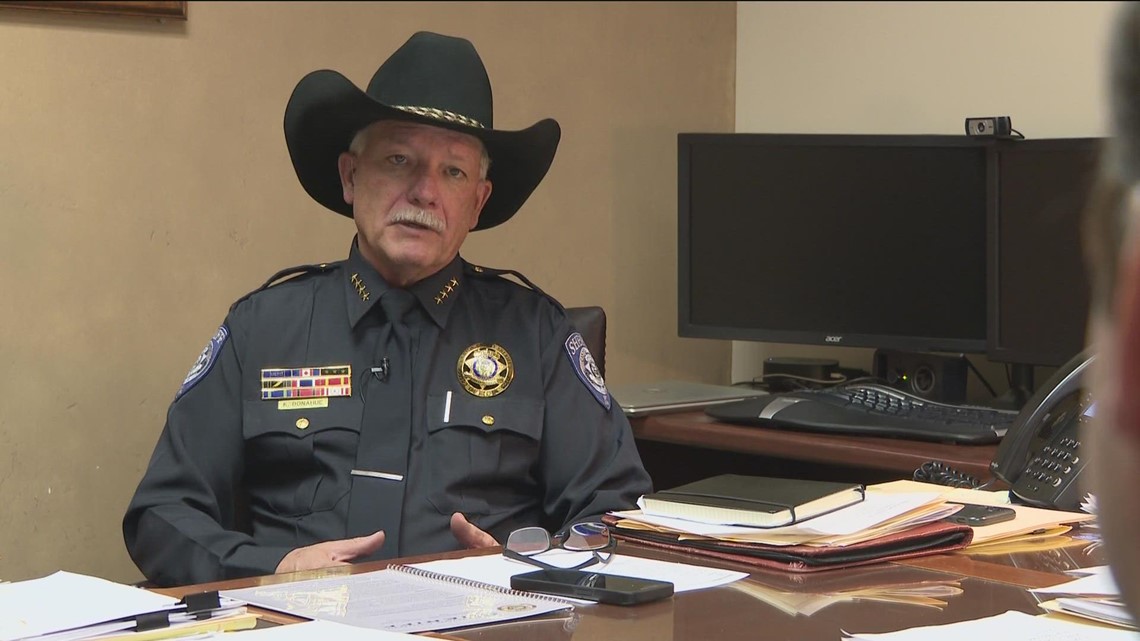‘It is critical’: Human Trafficking Prevention Act could make a real impact in Idaho

The Idaho Anti-Trafficking Coalition helped 242 people escape human trafficking in 2021. Numbers for 2022 are similar.
BOISE, Idaho — The Idaho Anti-Trafficking Coalition (IATC) is working alongside the Idaho Department of Transportation to post flyers in public busses with the IATC local crisis hotline.
IATC created their local 24/7 hotline in August 2021, according to IATC Executive Director Jennifer Zeilinski. The hotline has served as a vehicle to successfully moved 242 people out of human trafficking in 2021 alone.
Numbers from 2022 are on a similar pace, according to Zeilinski.
IATC can post these flyers on Idaho busses due to permission from state law, but that's not the case across the entire United States. These laws vary from state-to-state; however, the federal government could mandate this type of awareness with President Joe Biden's signature.
Sen. Jim Risch (Idaho – R) introduced the Human Trafficking Prevention Act alongside his colleagues in Congress. The bill requires public transportation and hubs – including busses, planes, and trains – to post the National Human Trafficking Hotline.
The bill passed Congress with bipartisan support. It only needs President Joe Biden's signature to become law.
“I applaud congress for passing the Human Trafficking Prevention Act and taking this step in preventing this abhorrent crime,” Senator Risch said. “There is still more to be done and I will continue to support anti-trafficking efforts, provide victims with the necessary resources, and ensure traffickers are punished to the fullest extent.”
Meridian Police Detective Joe Whilden specializes in human trafficking prevention. Through his work experince, Detective Whilden has complied a list of common denominators human traffickers use to suppress victims:
- Victims are prevented from coming and going from a location.
- Trafficker dictates their daily schedule and what they are allowed to do.
- Victims will have their identification/passport taken from them by their trafficker, to prevent them from leaving.
- Victims will have threats against them and their family if they do not comply with what the trafficker wants.
- Victims are often beaten when they don't do what is asked of them. Not only by the trafficker, but other victims of the trafficker.
- Victims are compensated very little, if not at all for what their trafficker is asking them to do.
- Victims are often told that they owe the trafficker a certain amount of money and can't leave until that is paid off. The problem is that the trafficker is always adding more debt to the total amount owed, so the victim will always be in debt.
- Victims are groomed by their trafficker by offering a better life and money, and once that is achieved, they are isolated from loved ones in order to gain control of them.
“This issue does not only deal with sexual exploitation trafficking, but we also have a problem with forced labor and debt bondage. The key to getting the public involved is through education and providing them a resource to contact when they believe they have information related to a victim of human trafficking,” Detective Whilden said.
While victims of the crime want to leave, the uncertainty – and suppression -often holds them stuck in what Canyon County Sheriff Kieran Donahue calls ‘indentured servitude.'
“So, you wanna get out? Go! But – how are you gonna get there? Who are you gonna call? What are you gonna use for money? And don't forget the threats,” Sheriff Donahue said.
Sheriff Donahue applauds Sen. Risch's efforts to expand resource awareness and accessibility through the Human Trafficking Prevention Act.
“What people don't understand is the nature of the enemy that controls this,” Donahue said. “That's a gamechanger for these people. Believe me, if you're out there at a truck stop or downtown on a bus and see these numbers, don't think they're not gonna take these numbers down. Because they will.”
The national hotline is often an entry point to more specialized resources, including the IATC.
“If someone were to contact them in need of assistance in Idaho, they would be able to connect and link directly to us and done so. We have been very successful in partnering with them,” Zeilinski said.
The IATC hotline is (208) 630-6601. It's a 24/7 number available through call or text. The national hotline can be found at 1-888-373-7888, this number can also serve as a tip line.
See the latest news from around the Treasure Valley and the Gem State in our YouTube playlist:
This “Eyes on Trafficking” story is reprinted from its original online location.
 ABOUT PBJ LEARNING
ABOUT PBJ LEARNING
PBJ Learning is a leading provider of online human trafficking training, focusing on awareness and prevention education. Their interactive Human Trafficking Essentials online course is used worldwide to educate professionals and individuals how to recognize human trafficking and how to respond to potential victims. Learn on any web browser (even your mobile phone) at any time.
More stories like this can be found in your PBJ Learning Knowledge Vault.
EYES ON TRAFFICKING
This “Eyes on Trafficking” story is reprinted from its original online location.
ABOUT PBJ LEARNING
PBJ Learning is a leading provider of online human trafficking training, focusing on awareness and prevention education. Their interactive Human Trafficking Essentials online course is used worldwide to educate professionals and individuals how to recognize human trafficking and how to respond to potential victims. Learn on any web browser (even your mobile phone) at any time.
More stories like this can be found in your PBJ Learning Knowledge Vault.
